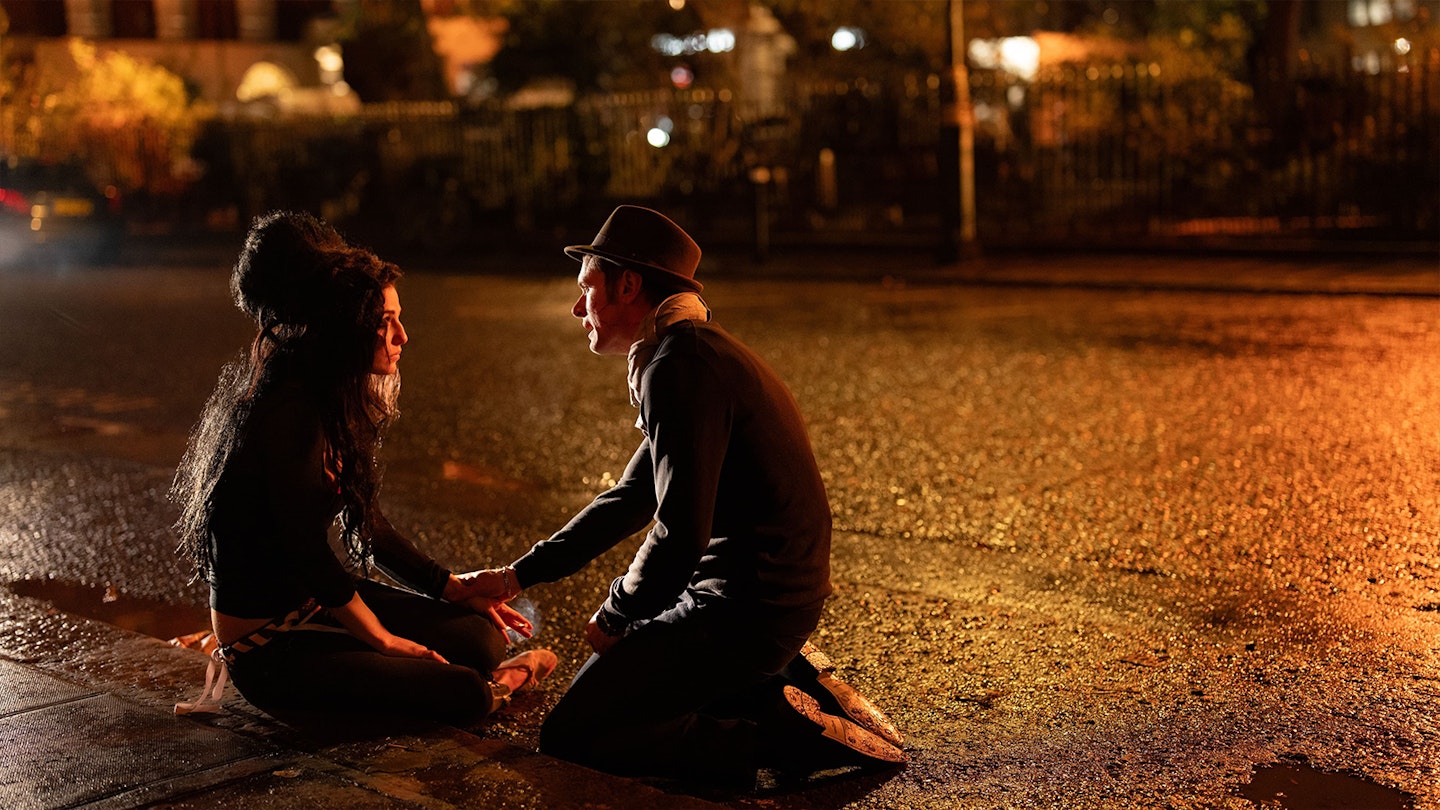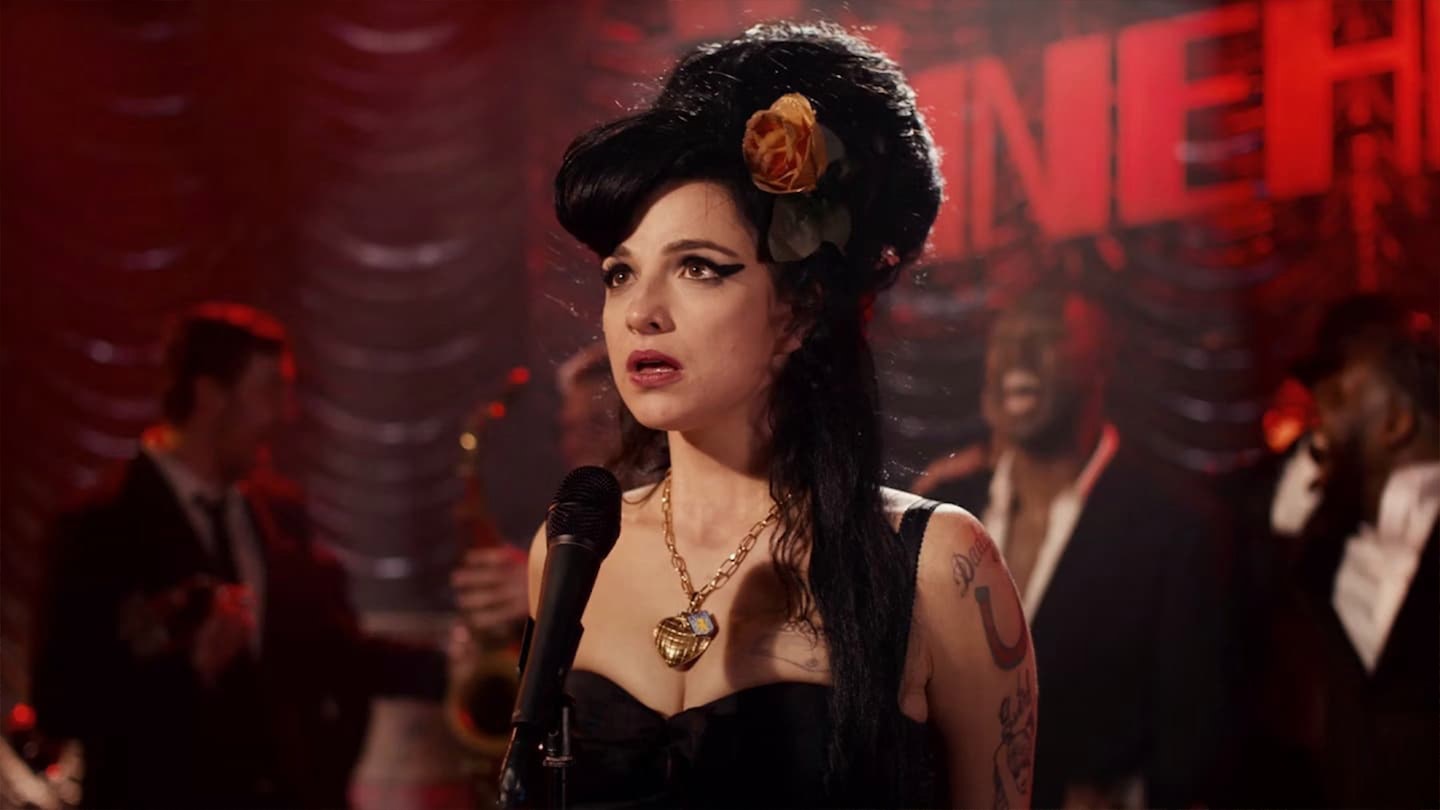The greatest sin a biopic can commit is playing footage of the real person over the credits to show how accurate the acting was. You’ll find none of this in Back To Black: most of us lived through Amy Winehouse’s rise, fame and decline, so even the most casual observer can play the footage in their own mind.
An incredibly bold and admirable move, then, for relative newcomer Marisa Abela (BBC TV drama Industry) to take on what might be the most scrutinised performance of her lifetime. And she is great: Abela can sing, her voice is recognisably the gobby and vibrant Amy, who spoke in interviews without a filter, and the alcohol shakes in the cold light of the corner shop ring true. In a scene set at 2008’s Glastonbury Festival, she gets down off the stage to totter close to the audience on high heels, almost daring the security guards to let her fall. It feels woozy and alive and real.

It’s unfortunate, however, that she is let down by a weak script that tells us even less than we already know. In 2015, Asif Kapadia’s documentary Amy showed us extensive archive footage and the few parts of her life she was able to keep from the press. In 2021, the BBC documentary Reclaiming Amy saw the family offer a counter-argument to how they had been portrayed (her father, Mitch, claimed he had a nervous breakdown after Amy’s release). The aim of this film is to tell us this same story but from Amy’s perspective, but it fails at its most Amy-perspective hurdle: what is it she saw in Blake Fielder-Civil (played here by Jack O’Connell), the man who would become her husband, that the rest of us didn’t? Here, he’s no more than he was in the tabloids.
While the songs act as a musical-like narrative of her life, no time is devoted to showing us how she made them.
Elsewhere, cherry-picked facts allow her father, played by Eddie Marsan, to come off as the unquestioned hero, while other elements of her life have been skimmed over. Her best friends, in reality so close that one of them personally picked out the Dolce & Gabbana leopard-print dress she wore for her cremation, are brief asides in an otherwise Blake-centred tale.
Perhaps the issue is the film’s concept: the script draws its inspiration from her lyrics in Back To Black, and Fielder-Civil was the subject of this second and final album. But while the songs act as a musical-like narrative of her life, no time is devoted to showing us how she made them (pouring them out fully-formed in her bedroom with an acoustic guitar doesn’t count). We see none of the artistic decisions she made in the studio that led to her becoming a phenomenon, or the complicated but powerful singer-songwriter who won five Grammys in one night. In Back To Black, Amy Winehouse is just a girl singing about a boy.
